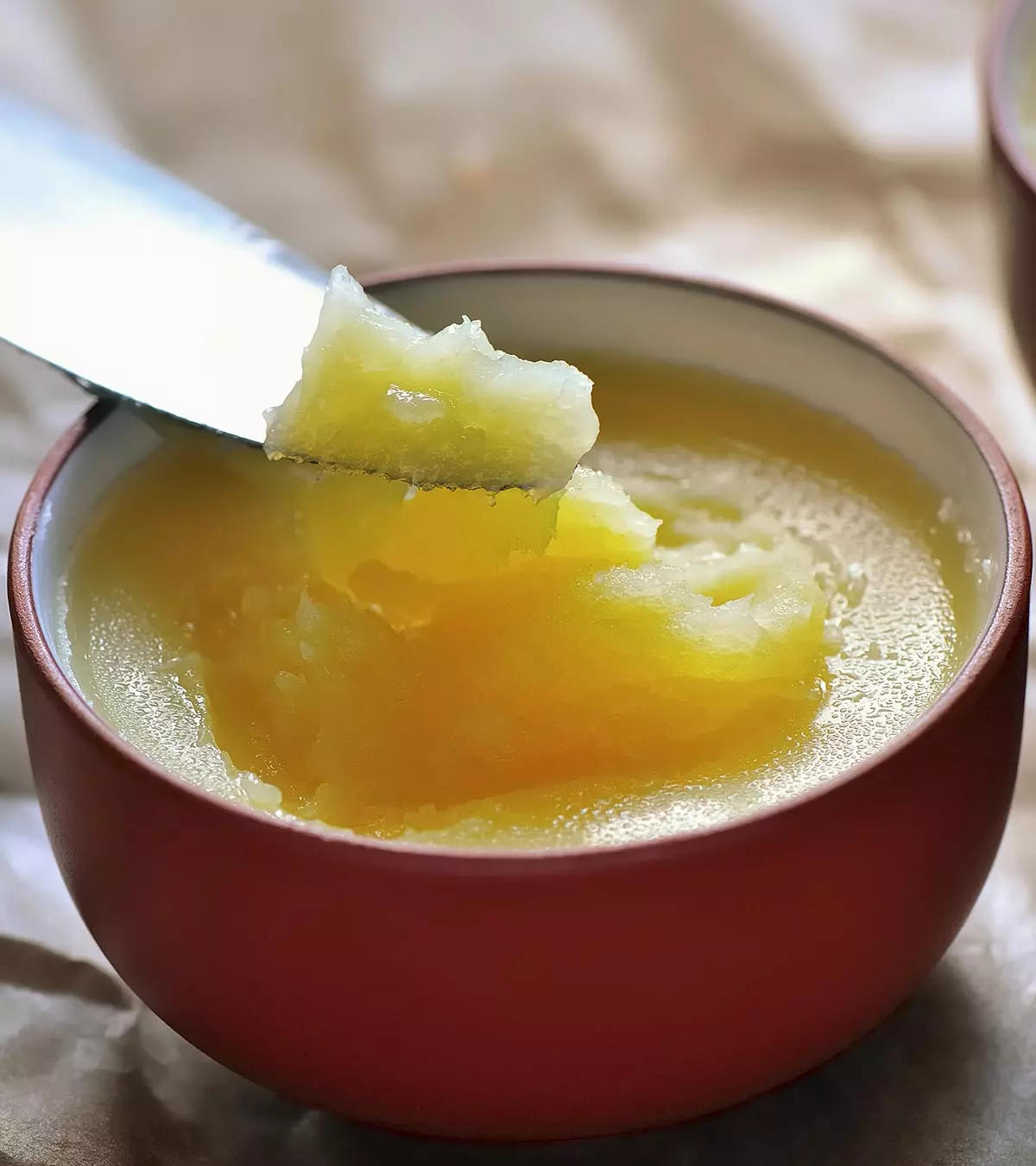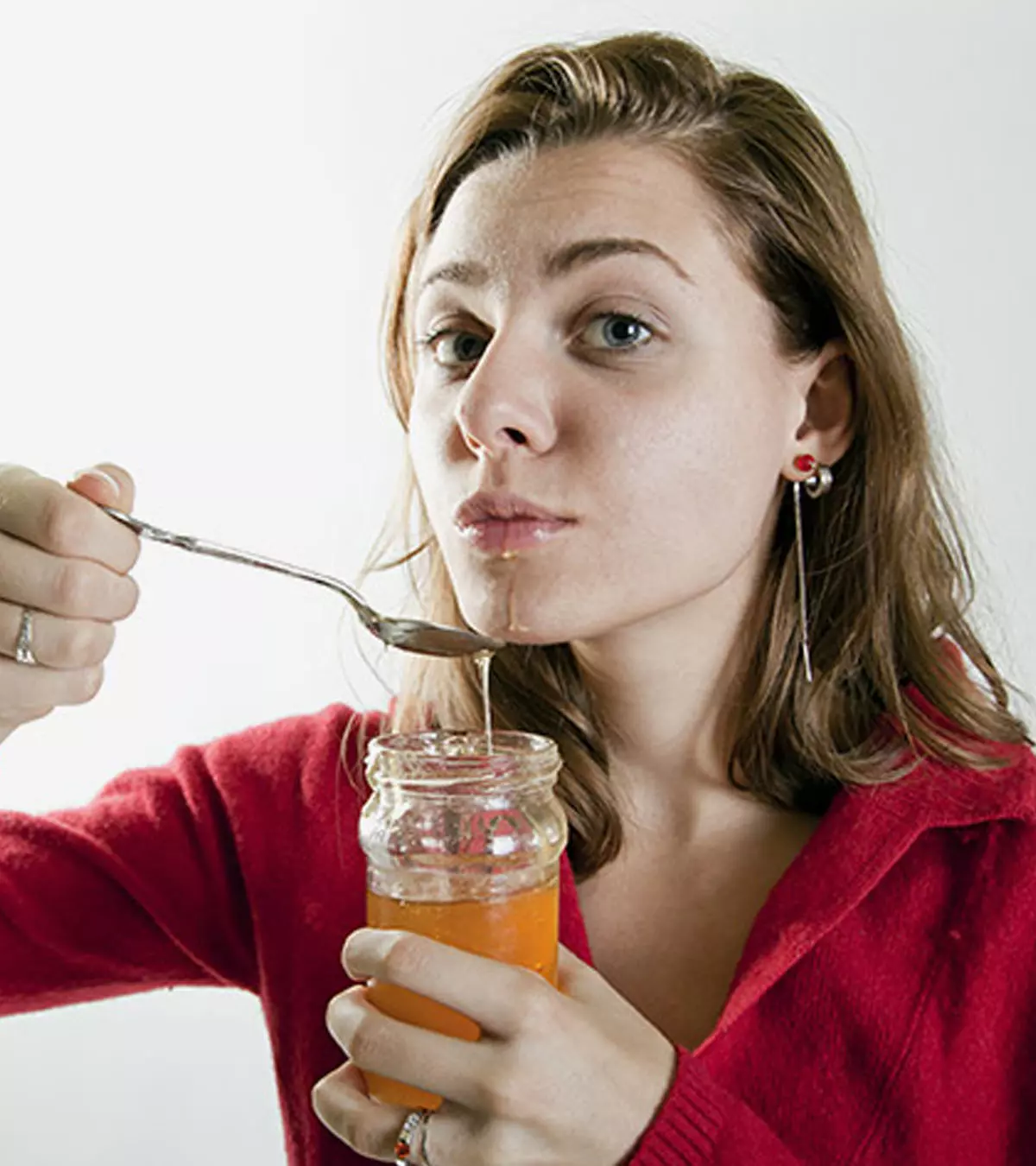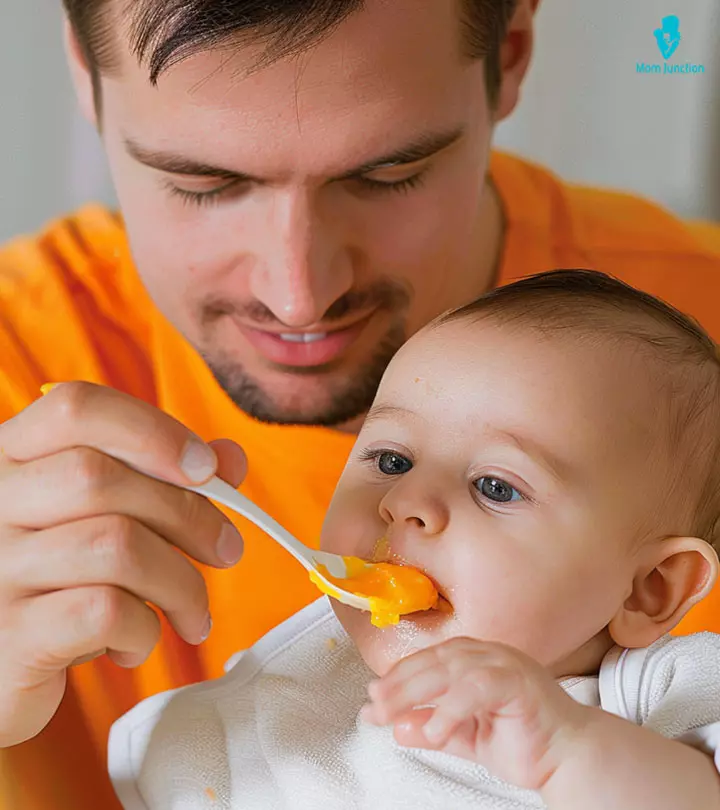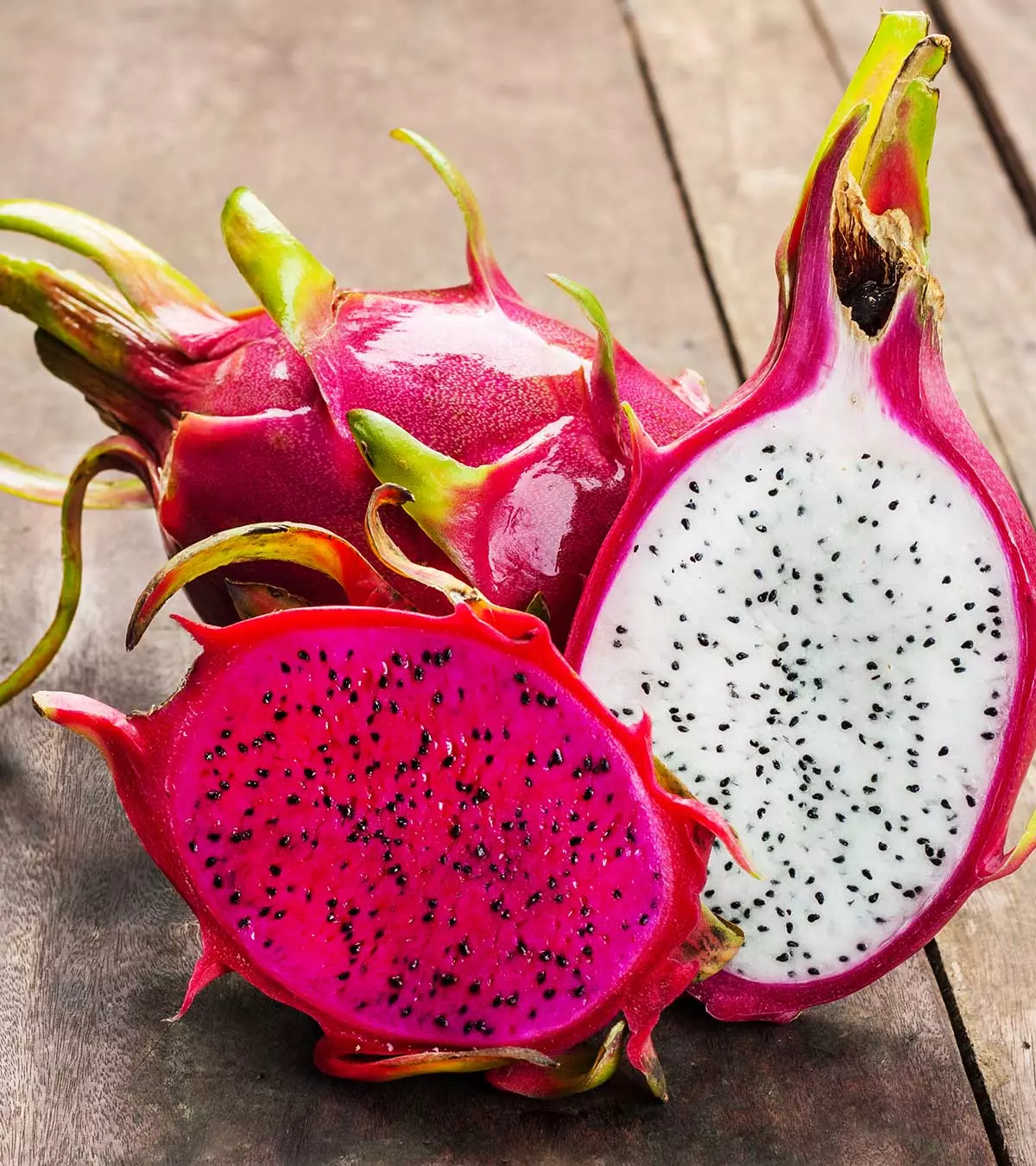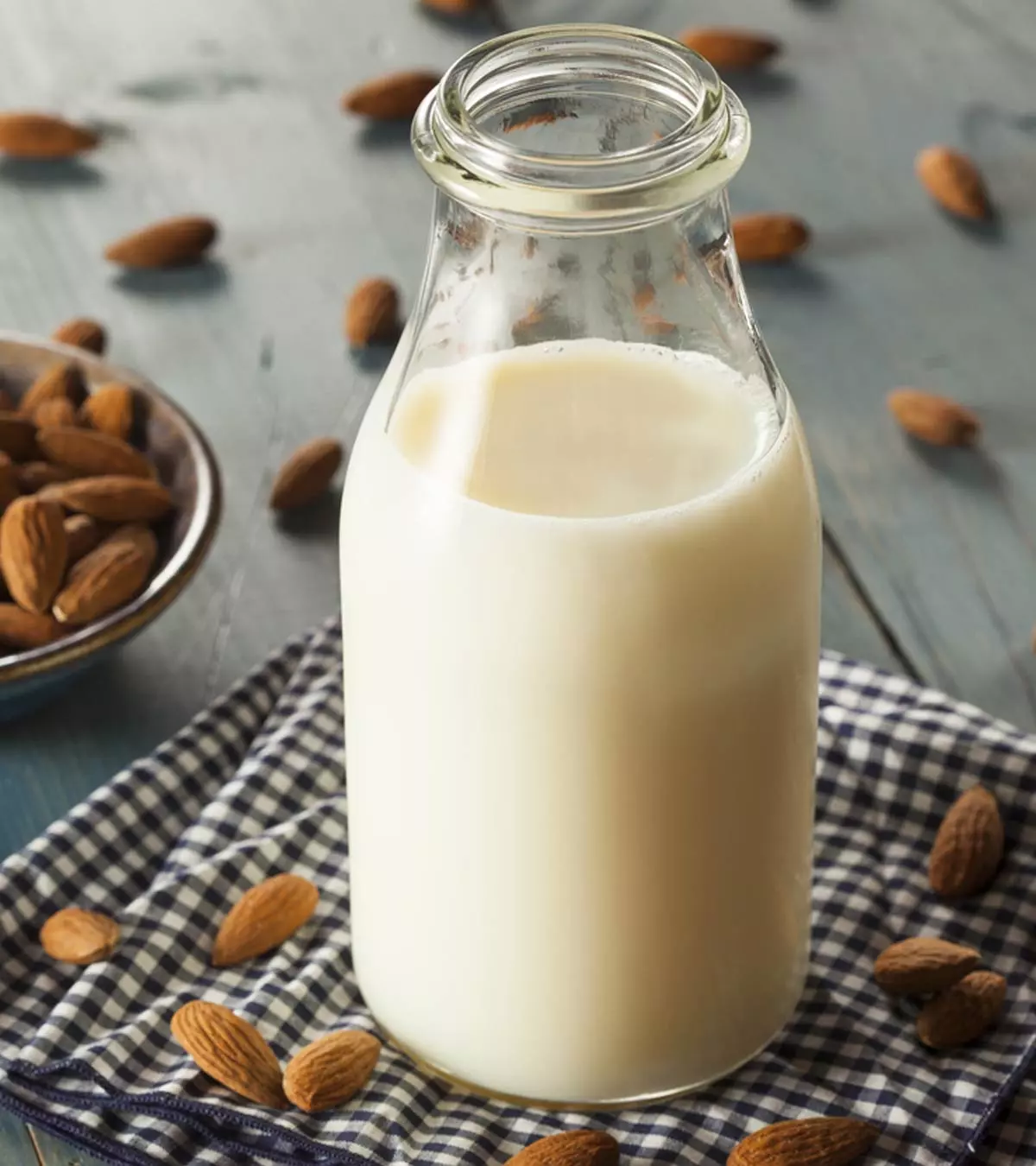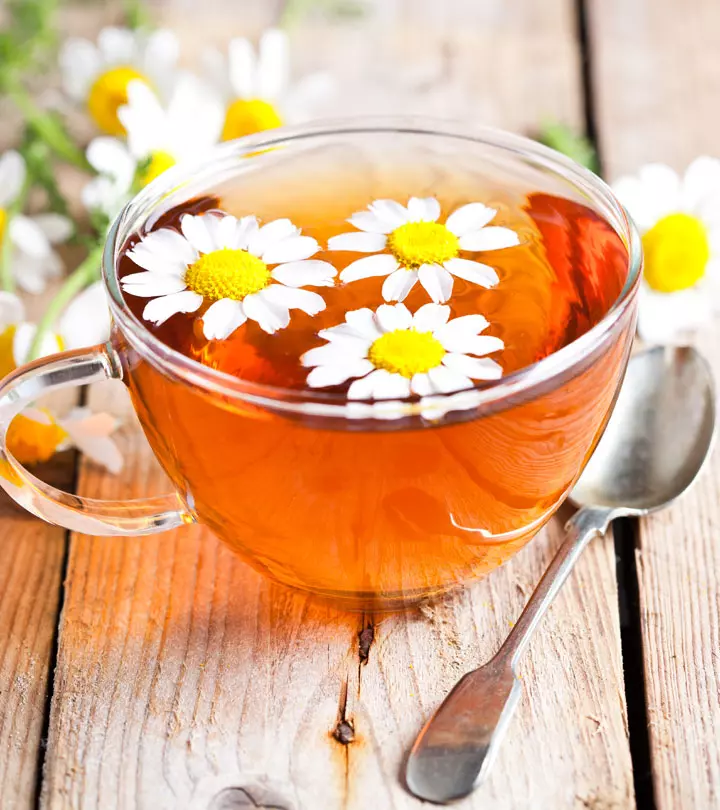
Image: ShutterStock
Chamomile tea is a refreshing herbal tea people consume to relax their bodies and mind. Besides being caffeine-free, it has certain bioactive compounds that can boost health over time, which is why you might want to consume chamomile tea during pregnancy.
But is chamomile tea safe for pregnant women and their babies? What benefits does it offer? Knowing this is vital to avert the risks that chamomile tea might pose for expectant mothers and their unborn babies. So, keep reading as we tell you all about the safety of chamomile tea for pregnant women, including its possible health benefits and risks and precautions to observe when drinking it.
Key Pointers
- Chamomile tea is safe for pregnant women if consumed in moderation (one cup per day).
- Drinking chamomile tea during pregnancy has health benefits, including improved immunity, better sleep, relief from muscle pain, and protection against cancer.
- Consuming too much chamomile tea during pregnancy may increase the risk of miscarriage and cause fatigue.
- Chamomile tea can interfere with anesthetics and other medications.
- Pregnant women with a flower allergy or those taking medication should avoid chamomile tea or seek medical advice before consumption.
What Is Chamomile Tea?
Chamomile tea is made of flowers of two common herbs German chamomile (Matricaria recutita) and Roman chamomile (Chamaemelum nobile). The flowers are sun-dried, crumbled and then stored in an air-tight jar.
The crumbled flowers are added to boiling water to make the tea, which has been a traditional medicine and natural remedy for inflammation, immunity, insomnia, menstruation, and gastrointestinal problems. Since the tea is made of flowers, it has a beautiful aroma that soothes both the body and the mind (1).
Is It Safe To Drink Chamomile Tea During Pregnancy?
Chamomile tea could be safe during pregnancy if you are having it in moderation. There are not many studies on the safety or efficacy of herbal teas during pregnancy, including chamomile tea (2). However, it is included in the Generally Regarded As Safe (GRAS) category by the US FDA (3).
 Point to consider
Point to considerHow Much Chamomile Tea Is Safe During Pregnancy?

Image: Shutterstock
Restrict your consumption to one cup a day. If you want to have it multiple times in a day, divide that one cup of tea into multiple portions and drink it through the day, or dilute the content by adding more water.
An occasional cup of chamomile tea can provide hydration and might improve overall health. However, it is advisable to consult your gynecologist before consuming chamomile tea during pregnancy.
Benefits Of Drinking Chamomile Tea During Pregnancy
Let us see how it might help you (4) (5) (6):
1. Improves sleep quality
Having a cup of chamomile tea before bedtime soothes your nerves, and helps you sleep better. The sedative nature of the herb can work as an effective sleep-aid that can help treat insomnia.
2. Boosts immunity
Chamomile tea can strengthen the immune system, which helps the body fight infections and improve overall immunity. You may take a cup of freshly brewed tea if you have a slight fever and a runny nose.
3. Soothes muscular pain
Chamomile tea can relieve muscle pains and spasms associated with gastrointestinal inflammatory disorders. It can also increase glycine levels in the body to provide relaxation to the muscles and nerves.
 Things to know
Things to know4. Cures mouth ulcers
Chamomile tea can be used as a mouthwash to soothe uncomfortable mouth ulcers and sores. Use strong tea or diluted tincture three to four times a day to rinse your mouth for relief from the ulcers.
5. Protects from cancers and heart diseases
Chamomile tea contains polyphenols that can protect your heart. Its antioxidant properties may also lower the risk of cancers.
6. Treats indigestion and relieves morning sickness

Image: IStock
The anti-inflammatory nature of chamomile helps alleviate common digestive issues such as constipation, gas and bloating. The fruit aroma and tantalizing flavor also soothe nausea and morning sickness.
Alternative medicine uses chamomile tea for stress relief and anxiety management. However, research on the effectiveness of chamomile for these purposes is still ongoing. Hence, expecting moms should use chamomile only after talking to an alternative medicine expert.
Chaa Yen, a mother of two children, shares her experience with her second pregnancy. She writes, “Nausea was my biggest issue this time round. I couldn’t even swallow water, so I ended up almost getting early-stage diabetes. The solution (suggested by my gynae) was to take chamomile tea. I restricted myself to 2 teabags a day because I am a huge believer of moderation and things started to look up (i).”
 Quick fact
Quick factIn spite of these healthy reasons, you need to drink chamomile tea in moderation because it could have some side effects too.
Side Effects Of Drinking Chamomile Tea During Pregnancy

Image: IStock
You are likely to have the below effects on drinking the tea in excess amounts (7) (8).
- Taking excess chamomile tea might increase the risk of a miscarriage. However, there is no scientific evidence to support this. Probably, the relaxing property of chamomile tea may induce uterine contractions leading to a miscarriage.
- Chamomile tea may cause drowsiness because of its sedative nature. Therefore, do not take it in large quantities.
- If you are allergic to flowers such as daisies, ragweed, asters, and chrysanthemums, then you might be allergic to chamomile as well, leading to skin rashes and bronchial constriction. However, this is a rare occurrence.
- Chamomile might interact with anesthetic medications leading to adverse effects. Therefore, avoid drinking the tea before your C-section.
- Chamomile may interact with high blood pressure and gestational diabetes medications. Hence, speak to your doctor before consuming chamomile when pregnant.
- Various forms of chamomile extracts and supplements may also react with medications such as painkillers, sedatives and antimicrobial drugs which you might be taking during pregnancy. Therefore, talk to your doctor if drinking chamomile tea and taking medication.
- Chamomile has blood-thinning properties. If you already have this problem, you might want to restrict the consumption of this tea.
- If you love the aroma and taste of chamomile tea and do not want to give it a miss, then drink it but take some precautions.
Precautions To Take While Drinking Chamomile Tea
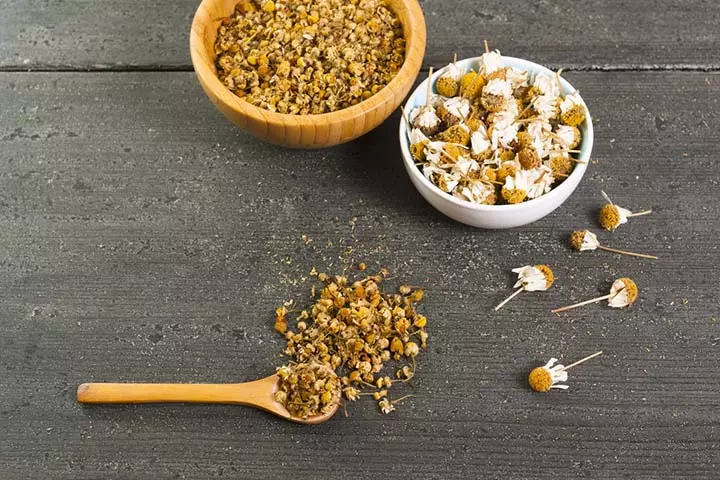
Image: Shutterstock
Here is what you can do:
- Consult your healthcare provider before including it in your pregnancy diet.
- You may ask the doctor about the safe quantity of chamomile tea you can drink daily.
- Use the dried flower heads and not the leaves for making the tea. Leaves would taste bitter.
- Buy the tea from a reliable brand to avoid harmful additives in it.
Brew the tea at home to have a fresh one every time.
How To Make Chamomile Tea At Home?
Follow these simple steps to steep a perfect cup of tea:
- Boil one cup of water.
- Transfer the boiling water into a mug, and add chamomile dried flower extract or tea bag.
- Allow it to steep for five to ten minutes depending on how concentrated you want it to be. Cover the mug so that the aroma remains.
- Strain the tea to remove the chamomile extract or remove the tea bag.
- You might add a teaspoon of honey to enjoy the freshly brewed chamomile tea.
Next, we answer some commonly asked questions about chamomile during pregnancy.
Frequently Asked Questions
1. Does chamomile tea help induce labor?
There is not enough research to prove that chamomile tea can induce labor during childbirth. But drinking in excessive amounts may cause uterine contractions, which could lead to miscarriage or preterm labor.
2. What is the best time to drink chamomile tea during pregnancy?
You can have chamomile tea anytime from the first trimester to the third trimester but in moderate amounts.
While a cup of freshly made chamomile tea is refreshing on a tiring day, do not get tempted to drink multiple cups. Have it moderately while enjoying each sip of it.
3. Can you drink chamomile tea when trying to conceive?
According to a medical study, chamomile is considered unsafe during pregnancy, with possible severe perinatal outcomes (9).
4. Are there safer alternatives to chamomile tea during pregnancy?
Yes, there are several safer alternatives to chamomile tea during pregnancy. These include ginger tea and peppermint tea, which help with indigestion and nausea. However, they must be consumed in moderation. Also, consult your doctor first before trying new herbal teas while pregnant.
Chamomile tea is a herbal beverage that you may enjoy during pregnancy. Due to its medicinal and healing properties, consuming chamomile tea during pregnancy may help you manage your morning sickness, improve immunity, and soothe muscular pain. However, extra care needs to be taken while consuming anything when pregnant. So, be careful to not drink too much of it, but stick to the recommended amount. Moreover, given there is a possibility of side effects, you should consult your ob/GYN before consuming anything to avoid complications.
Infographic: When To Avoid Chamomile Tea?
You must abstain from drinking chamomile tea if you are allergic to chamomile or are on certain medications. Take a look at this infographic that lists the common allergic reactions to chamomile tea. Also, carry this infographic with you and open your medicine cabinet to check which of these medications you use. Illustration: Momjunction Design Team
Illustration: Chamomile Tea When Pregnant: Safety Benefits & Side Effects

Image: Stable Diffusion/MomJunction Design Team
Learn from this informative video about how chamomile tea can help you during pregnancy. Discover its benefits and how to use it safely.
Personal Experience: Source
MomJunction articles include first-hand experiences to provide you with better insights through real-life narratives. Here are the sources of personal accounts referenced in this article.
i. Hello baby #2;https://forfunk.blogspot.com/2022/06/Pregnancy-Nausea.html
References
1. Chamomile; National Center for Complementary and Integrative Health (2016)
2. Foods to avoid in pregnancy; NHS (2017)
3. Armando Gonzalez Stuart; Chamomile; Herbal Safety (2003-2018)
4. Janmejai K Srivastava et al.; Chamomile: A herbal medicine of the past with bright future; Mol Med Report (2011)
5. Bret T. Howrey et al.; Chamomile Consumption and Mortality: A Prospective Study of Mexican Origin Older Adults; Gerontologist (2016)
6. Chamomile (Matricaria Recutita); UIC Heritage Garden3
7. Chandini Ravikumar; Review on Herbal Teas; Journal of Pharmaceutical Sciences and Research (2014)
8. Lourdes Rodriguez-Fragoso et al.; Risks and Benefits of Commonly used Herbal Medicines in México; Toxicol Appl Pharmacol (2009)
9. Frequently Used Herbal Teas During Pregnancy – Short Update
10. Herbal Tea and Pregnancy; American Pregnancy Association
11. Herbal tea consumption during pregnancy; University of Wollongong
Community Experiences
Join the conversation and become a part of our nurturing community! Share your stories, experiences, and insights to connect with fellow parents.
Read full bio of Nupur Agarwal
- Hannah Whittaker is an expert pregnancy and pediatric dietitian with nearly 20 years of experience, the last seven years as a registered dietitian. She manages her private practice Bump2baby Nutrition in the UK, having done her graduation in community nutrition and dietetics from Liverpool John Moores University & University of Chester respectively.
 Hannah Whittaker is an expert pregnancy and pediatric dietitian with nearly 20 years of experience, the last seven years as a registered dietitian. She manages her private practice Bump2baby Nutrition in the UK, having done her graduation in community nutrition and dietetics from Liverpool John Moores University & University of Chester respectively.
Hannah Whittaker is an expert pregnancy and pediatric dietitian with nearly 20 years of experience, the last seven years as a registered dietitian. She manages her private practice Bump2baby Nutrition in the UK, having done her graduation in community nutrition and dietetics from Liverpool John Moores University & University of Chester respectively.
Read full bio of Swati Patwal
Read full bio of Rebecca Malachi
Read full bio of Aneesha Amonz







